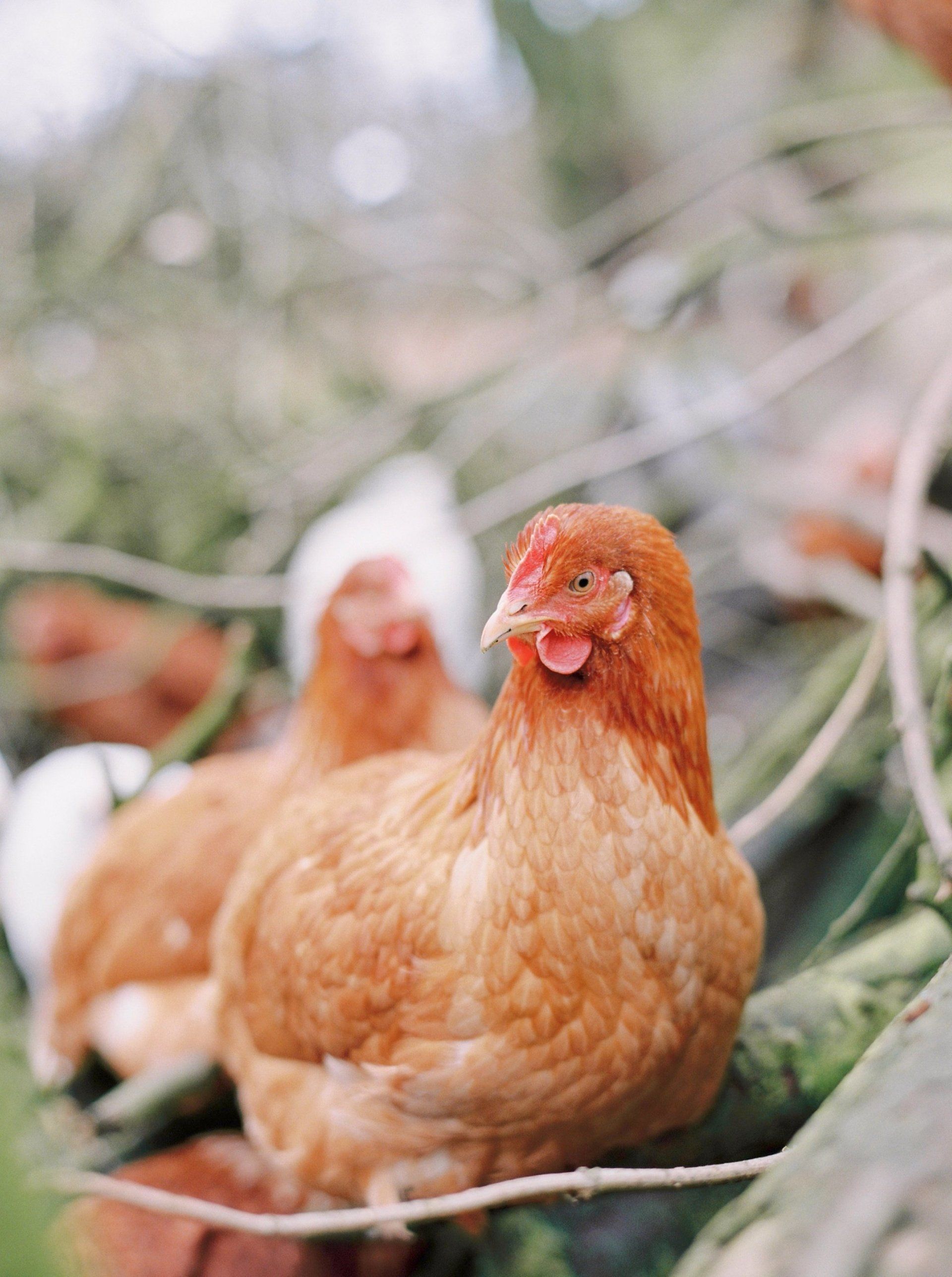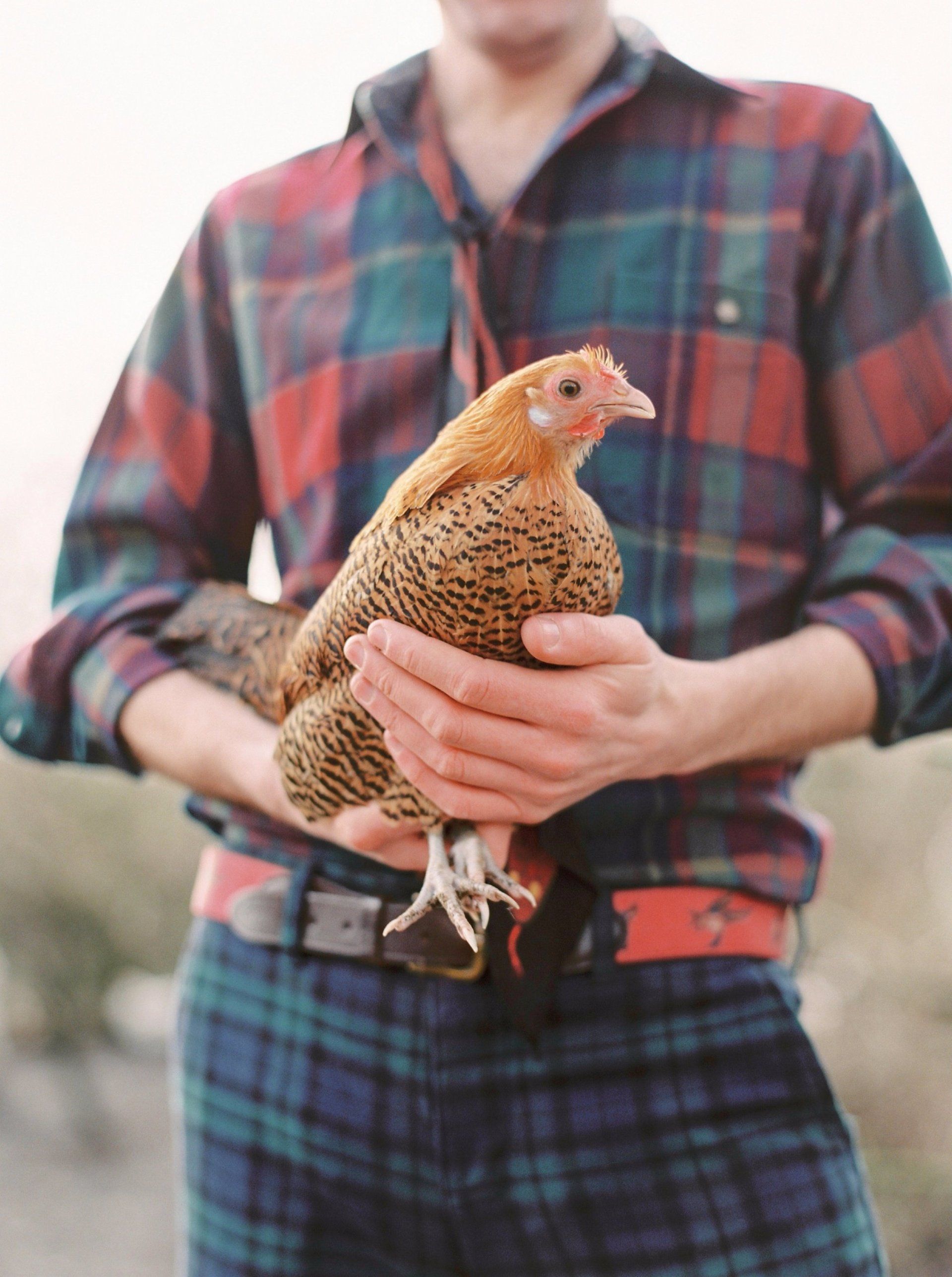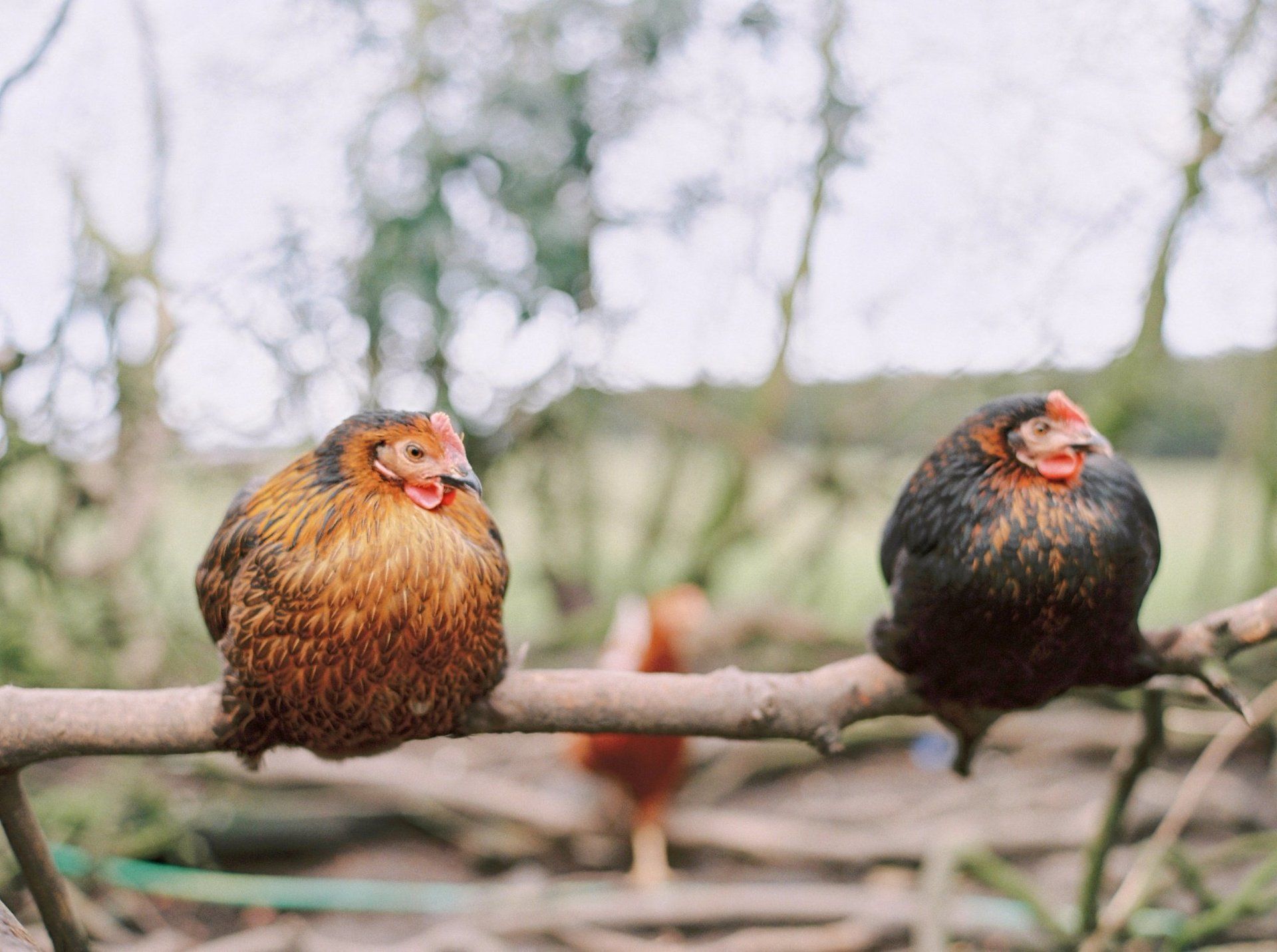Guide to Keeping Chickens
0
Guide to Keeping Chickens
Preparing for your hens
Free-range or in a Run:
Whether you keep your hens free-range, where they sleep in a coop and roam freely during the day, or contained within a run will depend on your circumstances. Free-range is great if you have space but most hens will be happy in a run providing they are not overcrowded, and they will be safer from predators.
Hen Houses: There is a large range of hen houses available. Some have integral runs, others have detachable runs and some are designed to stand inside an enclosure or be used for free-range birds. Wood is the traditional material but modern plastic ones provide a practical alternative, being easy to clean and long-lasting.
Bedding: We use wood shavings on the floor of the coops. They are often more expensive than straw but last longer so the cost is comparable. Bedding should be changed regularly (every 1 or 2 weeks or if it is wet or smells). We mix Red Mite Powder into fresh bedding to keep the coop free of mites and other insects. Wood shavings and straw are available in our shop.

Choosing your hens: Hens for laying eggs are usually purchased at point of lay (16-24 weeks old). Most hens start to lay between 20-30 weeks depending on the breed. Hybrids lay earlier than pure breeds. Buying at point of lay means you have the hens for their full laying lives and they lay most eggs in their first year. It is worth buying good quality, young hens that will lay well. It can be frustrating and costly to feed and look after older hens that don't provide eggs in return. Some hens, such as ex-battery hens,can find it difficult to adapt to living in a mixed flock as they will not have seen other types of hens before. Our hens are kept in sheds with a variety of breeds so tend to mix well.
Collecting your hens: You're welcome to collect your hens during opening hours from Durham Hens and we can provide cardboard boxes to transport them home. These are £2 each and will hold up to 4 hens. Hens' wings can be clipped to prevent them from flying; this does not cause the hen any pain or distress. If you'd like your hens' wings to be clipped, there is an option when you purchase them online from our website. The cost is £0.50 per hen. Please keep the car cool while travelling as hens can overheat. They do not need food or water while travelling.
Collecting your hens: You're welcome to collect your hens during opening hours from Durham Hens and we can provide cardboard boxes to transport them home. These are £2 each and will hold up to 4 hens. Hens' wings can be clipped to prevent them from flying; this does not cause the hen any pain or distress. If you'd like your hens' wings to be clipped, there is an option when you purchase them online from our website. The cost is £0.50 per hen. Please keep the car cool while travelling as hens can overheat. They do not need food or water while travelling.
Caring for your hens
Feeding:
Hens should have access to layers pellets or mash at all times; they will not overeat these. Please note that hens are healthier and eggs are more prolific and tastier if you use a good quality layers pellet or layers mash. Each hen needs approximately 1kg of food per week. Do not limit their food or egg production will drop. In the summer hens do not require any other food, although free-range hens will forage, and small amounts of mixed corn or wheat can be fed as a treat. In the winter layers pellets/mash should be combined roughly 4:1 with mixed corn or wheat, both of which are high in calories. The extra calories keep hens warm and therefore help with egg production during cold spells. Too much though can make your hens fat and prevent them from laying.
Fresh water should be available at all times. Allow at least 1/3L per hen each day. Mixed poultry grit should available too. It comprises small pieces of flint grit that aid digestion and pieces of oyster shells which provide extra calcium for egg shells. A separate container can be used for grit. We have layers pellets, layers mash, mixed corn and mixed grit available for sale.
Our feeders are kept indoors so the food stays dry and vermin cannot eat it at night. Drinkers can be indoors or outdoors, although there is less danger of other animals/birds sharing and spreading disease if it is kept indoors. Durham Hens stock a good selection of plastic drinkers and feeders in our shop.
Fresh water should be available at all times. Allow at least 1/3L per hen each day. Mixed poultry grit should available too. It comprises small pieces of flint grit that aid digestion and pieces of oyster shells which provide extra calcium for egg shells. A separate container can be used for grit. We have layers pellets, layers mash, mixed corn and mixed grit available for sale.
Our feeders are kept indoors so the food stays dry and vermin cannot eat it at night. Drinkers can be indoors or outdoors, although there is less danger of other animals/birds sharing and spreading disease if it is kept indoors. Durham Hens stock a good selection of plastic drinkers and feeders in our shop.
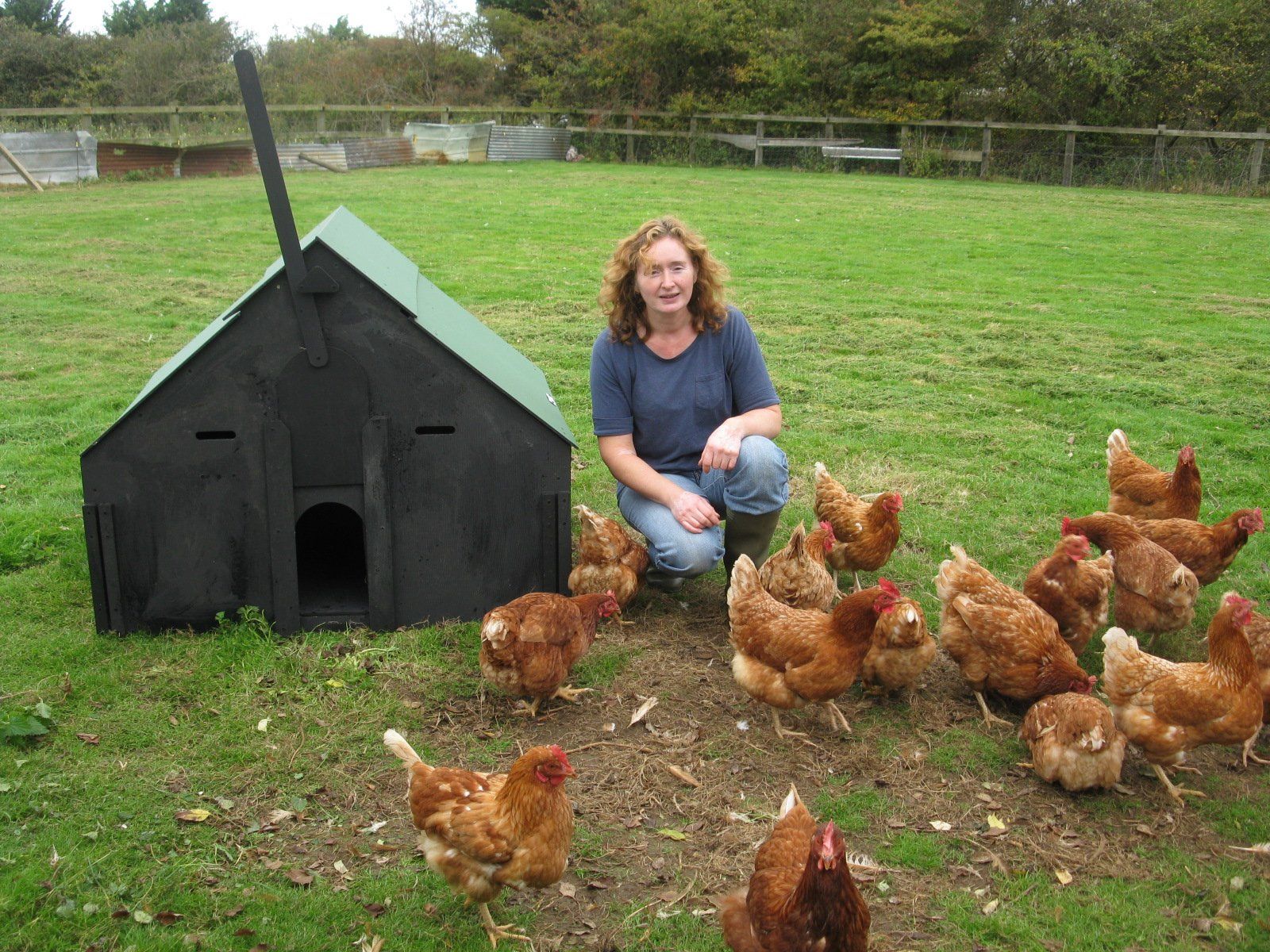
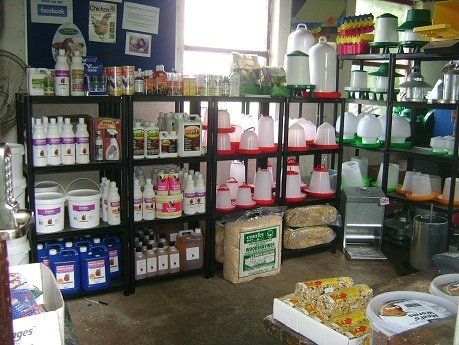
Health Matters
Worming: Hens need to be wormed regularly. Natural products to prevent worms include Verm-X pellets or Red Mite Powder (diatomaceous earth). However, Flubenvet is the only treatment licensed for worming hens and should be used if hens are suffering from worms.
Fleas, Lice & Mites: To treat and prevent mites, fleas and lice, apply Red Mite Powder to dust baths or directly onto the hens (especially under their wings and around their bottoms).
Moulting: Hens moult annually. They may appear scruffy as they lose their old feathers and new ones grow. Most hens will stop laying temporarily through the moult. This is a natural process which can be accelerated by adding Poultry Spice to their food.
If you are concerned about a hen please see our 'Hen Health' page or visit your vet as many conditions can be easily treated if they are diagnosed early.
Cleaning the coop:
As well as regular changes of bedding, the coop should be cleaned thoroughly about four times a year. We use Poultry Shield, an effective cleaner designed for poultry sheds. It kills all organic matter including red mite but is safe for your hens. It is available from our shop.
Hens in Winter: Hens are outdoor animals and, unless you have exotic breeds, they are pretty hardy.
Food: If you keep them on the same rations as in summer, they'll use all the calorie intake to keep warm - hence the myth that hens won't lay in winter! To ensure you have a good supply of eggs in winter, you should add about a fifth mixed corn or maize to their normal layers pellets/mash. Some people prefer to give layers mash in the winter as it can be mixed with warm water to make a porridge-type mixture. Poultry spice is a traditional winter food supplement.
Water: When it's very cold check the drinking water regularly in case it's frozen. Heated pads can be used to prevent drinkers from freezing.
Coop: Extra bedding will help to insulate the hens from the ground. Keep the bedding as dry as possible. We use BioDri powder with wood shavings in winter (a natural sanitiser and drying agent). If you have a coop with a metal floor, use layers of newspaper for insulation - metal gets very cold in winter. Never close the vents on coops - warm damp air harbours germs and hens are prone to chest problems in these conditions. Cold dry air is healthier.
Run: Try to keep the run dry. Run covers are useful. Hens don't like snow on the ground. Add straw to the ground so they can scratch around - if they stay active they'll stay warmer!
Food: If you keep them on the same rations as in summer, they'll use all the calorie intake to keep warm - hence the myth that hens won't lay in winter! To ensure you have a good supply of eggs in winter, you should add about a fifth mixed corn or maize to their normal layers pellets/mash. Some people prefer to give layers mash in the winter as it can be mixed with warm water to make a porridge-type mixture. Poultry spice is a traditional winter food supplement.
Water: When it's very cold check the drinking water regularly in case it's frozen. Heated pads can be used to prevent drinkers from freezing.
Coop: Extra bedding will help to insulate the hens from the ground. Keep the bedding as dry as possible. We use BioDri powder with wood shavings in winter (a natural sanitiser and drying agent). If you have a coop with a metal floor, use layers of newspaper for insulation - metal gets very cold in winter. Never close the vents on coops - warm damp air harbours germs and hens are prone to chest problems in these conditions. Cold dry air is healthier.
Run: Try to keep the run dry. Run covers are useful. Hens don't like snow on the ground. Add straw to the ground so they can scratch around - if they stay active they'll stay warmer!
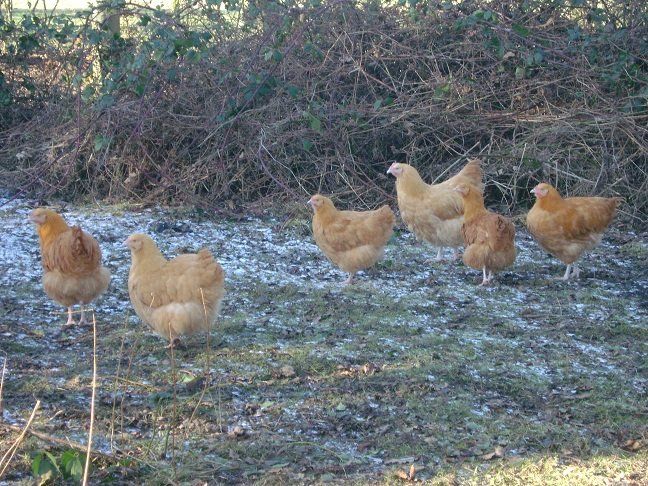
Pecking order:
Hens will have minor scuffles to sort out the pecking order. If feather pecking becomes a problem or they draw blood, remove the victim for a few days and either apply to prevent pecking or gentian violet spray to wounds. Watch your new birds carefully to make sure that they are all eating. If a hen appears weak and lethargic, sits in a corner with feathers fluffed up or refuses to leave the coop, she is probably being bullied off the food.
Predators:
Always lock your hens safely in their coop overnight to protect them from predators: foxes, badgers, stoats and dogs can kill hens.
Introducing new hens to your flock: It is best to introduce new hens to your coop on an evening after your existing hens have roosted for the night. Hens are more docile at this time. Watch the hens carefully when you let them out the next day. There is always a little bullying as they sort out the pecking order but this should soon settle down. Ensure your new hens are getting plenty of food as the existing flock often prevent them from eating (see pecking order above). Lack of food reduces their immune system, causes weakness and if prolonged they will starve!
Courses:
If you would like a more in-depth introduction to keeping chickens, we run regular courses at Durham Hens.
Address
Durham Hens LimitedVine HouseTow LawCounty DurhamDL13 4BNTel: 01388 731131Mob: 07763929686
Opening Hours
Friday 10am-4pm
Saturday 10am-4pm
Easter Weekend
Good Friday 10am-4pm
Saturday 10am-4pm
Easter Sunday Closed
Easter Monday Click & Collect
only
Choose your hens and browse
in our shop!
Click & Collect
Monday 10am-4pm
Tuesday 10am-4pm
Wednesday Closed
Thursday 10am-4pm
Friday 10am-4pm
Saturday 10am-4pm
Sunday Closed
Terms and Conditions
Copyright Durham Hens Limited 2023


